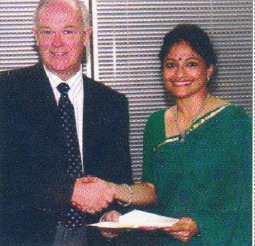The annual advertising awards of 2006 organized by Sri Lanka Institute of Marketing (SLIM) will not have the support of the 4A’s (Accredited Advertising Agencies Association) and the IAA (International Advertising Association). This was due to lack of enthusiasm to reform existing practices. The two organizations represent a majority of the advertising agencies in Sri Lanka. This situation arose after SLIM sidestepped the issue of advertising award reforms and ignoring several key issues put forth by both the 4A’s and the IAA. The focus from the beginning was the creative output of the Sri Lankan agencies that would allow them better showings at regional and international advertising festivals. However, this goal was never attempted other than superficially being positive. The proposed reforms have emerged as a result of various discussions that both associations have had with Sri Lanka’s advertising professionals. They had repeatedly voiced concerns to raise the Sri Lankan advertising standards for the industry to achieve international acclaim.
In line with this objective the boards of 4A’s and IAA met to discuss and document a proposal of the reforms to be presented to SLIM. This proposal suggests a fundamental shift in strategy. This would for a frequent evaluation of the global arena and an understanding of how best to compete in such an environment. The proposal also states that the international rules need to be followed, based on more frequent observations of international competitions. Categories need to be in line with international standards, while taking into consideration popular categories in Sri Lanka. This will require local awards to refrain from constantly adding and removing categories to the whims and fancies of local agencies. International festivals always put an onus on creative content as such the proposal suggested separating the single entry and the campaign entry in each medium. Furthermore, such awards should also give prominence to new media such as ambient marketing and interactive marketing. The prestige of any awards program depends on its jurors. Therefore, the associations recommended establishing several smaller juries and Integrated Communication.
It was believed that the credibility of the awards program would build by inviting leading personalities to chair each jury. The make up of the jury should also be changed, as juries should attempt to integrate both international and local professionals. The current three-tier judging process in place for the SLIM Awards 2005 was to be continued. Tier one – yes or no vote for each entry; Tier two – those entries voted yes are graded; Tier three – those highest graded are further considered by the panel of judges. In tiers two and three voting was suggested rather than grading. The proposal also discouraged the awarding of medals to areas that have not reached a certain level of maturity. Educating the industry will also take priority and as such, the judges should be given an opportunity to conduct a de-briefing. Foreign jurors could also be persuaded to conduct workshops and deliver addresses. In order to accomplish the goals set forth by the 4A’s and the IAA, the proposal also outlined a long-term structure to facilitate a series of steps to the ultimate goal – international standards in harmony with Sri Lankan culture.




